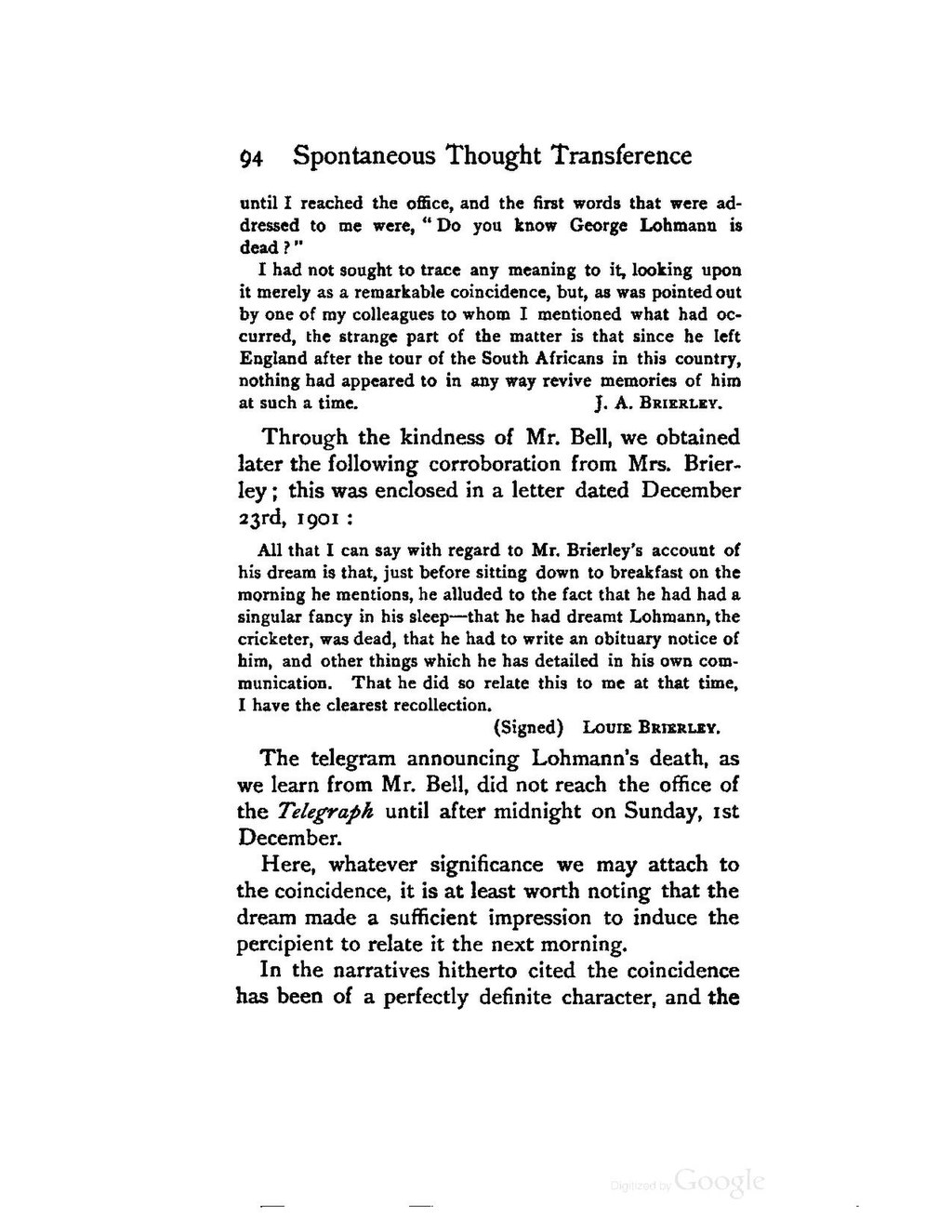until I reached the office, and the first words that were addressed to me were, "Do you know George Lohmann is dead?"
I had not sought to trace any meaning to it, looking upon it merely as a remarkable coincidence, but, as was pointed out by one of my colleagues to whom I mentioned what had occurred, the strange part of the matter is that since he left England after the tour of the South Africans in this country, nothing had appeared to in any way revive memories of him at such a time.Through the kindness of Mr. Bell, we obtained later the following corroboration from Mrs. Brierley; this was enclosed in a letter dated December 23rd, 1901:
All that I can say with regard to Mr. Brierley's account of his dream is that, just before sitting down to breakfast on the morning he mentions, he alluded to the fact that he had had a singular fancy in his sleep—that he had dreamt Lohmann, the cricketer, was dead, that he had to write an obituary notice of him, and other things which he has detailed in his own communication. That he did so relate this to me at that time, I have the clearest recollection.
The telegram announcing Lohmann's death, as we learn from Mr. Bell, did not reach the office of the Telegraph until after midnight on Sunday, 1st December.
Here, whatever significance we may attach to the coincidence, it is at least worth noting that the dream made a sufficient impression to induce the percipient to relate it the next morning.
In the narratives hitherto cited the coincidence has been of a perfectly definite character, and the
